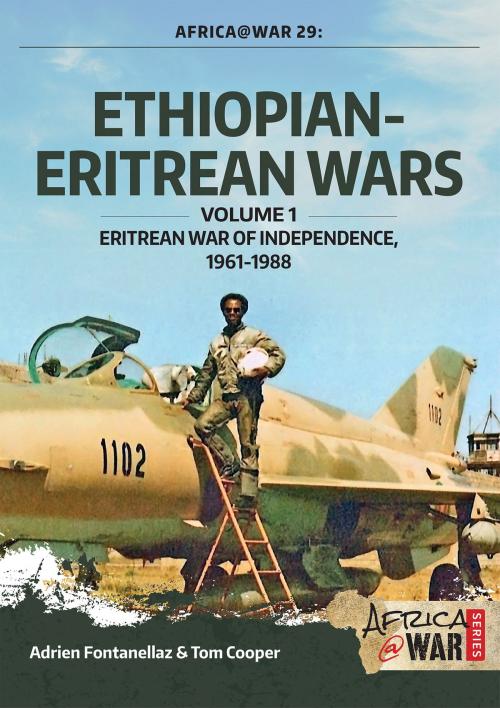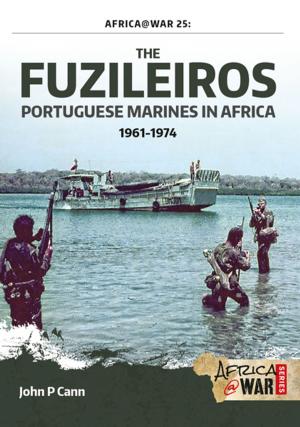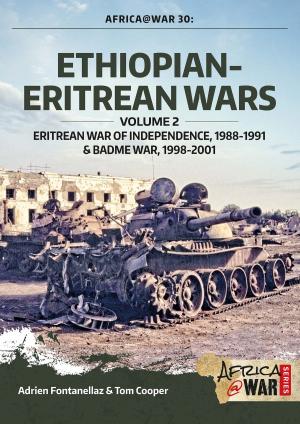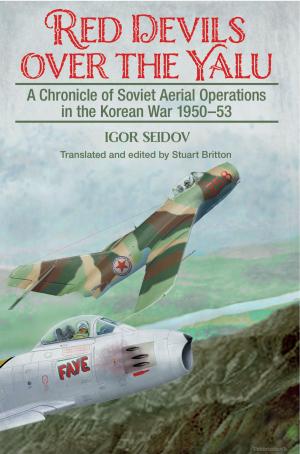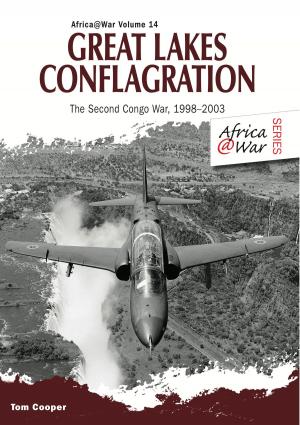Ethiopian-Eritrean Wars. Volume 1
Eritrean War of Independence, 1961-1988
Nonfiction, Reference & Language, Transportation, Aviation, History, Military, Africa| Author: | Tom Cooper, Adrien Fontanellaz | ISBN: | 9781913118341 |
| Publisher: | Helion and Company | Publication: | April 19, 2018 |
| Imprint: | Helion and Company | Language: | English |
| Author: | Tom Cooper, Adrien Fontanellaz |
| ISBN: | 9781913118341 |
| Publisher: | Helion and Company |
| Publication: | April 19, 2018 |
| Imprint: | Helion and Company |
| Language: | English |
Ethiopia, a country of ancient origins in eastern Africa, has remained a military powerhouse of that continent until the present day. Currently involved in the war in neighboring Somalia, Ethiopia was also involved in half a dozen of other armed conflicts during the last 60 years. One of the most significant was the Eritrean War of Independence. Fought 1961-1991, this was one of the biggest armed conflicts on the African continent, especially if measured by numbers of combatants involved. It included a wide spectrum of operations, from ‘classic’ counter-insurgency (COIN) to conventional warfare in mountains – with the latter being one of the most complex and demanding undertakings possible to conduct by a military force. Campaigns run during the Eritrean War of Independence often included large formations of relatively well-equipped forces, led by well-trained commanders, utilizing complex plans based on homegrown doctrine. Airpower played a crucial – although not necessarily decisive – role in many of battles. Nevertheless, most of details about this conflict remain unknown to the wider public. Similarly, relatively few Western observers are aware of relations between the Eritrean liberation movements, and various dissident and insurgent movements inside Ethiopia – although the synergy of these eventually led the downfall of the so-called Derg government, in 1991. Reaching back to extensive studies of Ethiopian and Eritrean military history, this volume provides a detailed account of the first 25 years of this conflict: from the outbreak of armed insurgency in 1961 until the crucial battle of Afabet, in 1988. It is illustrated by over 100 contemporary photographs, maps and color profiles.
Ethiopia, a country of ancient origins in eastern Africa, has remained a military powerhouse of that continent until the present day. Currently involved in the war in neighboring Somalia, Ethiopia was also involved in half a dozen of other armed conflicts during the last 60 years. One of the most significant was the Eritrean War of Independence. Fought 1961-1991, this was one of the biggest armed conflicts on the African continent, especially if measured by numbers of combatants involved. It included a wide spectrum of operations, from ‘classic’ counter-insurgency (COIN) to conventional warfare in mountains – with the latter being one of the most complex and demanding undertakings possible to conduct by a military force. Campaigns run during the Eritrean War of Independence often included large formations of relatively well-equipped forces, led by well-trained commanders, utilizing complex plans based on homegrown doctrine. Airpower played a crucial – although not necessarily decisive – role in many of battles. Nevertheless, most of details about this conflict remain unknown to the wider public. Similarly, relatively few Western observers are aware of relations between the Eritrean liberation movements, and various dissident and insurgent movements inside Ethiopia – although the synergy of these eventually led the downfall of the so-called Derg government, in 1991. Reaching back to extensive studies of Ethiopian and Eritrean military history, this volume provides a detailed account of the first 25 years of this conflict: from the outbreak of armed insurgency in 1961 until the crucial battle of Afabet, in 1988. It is illustrated by over 100 contemporary photographs, maps and color profiles.
